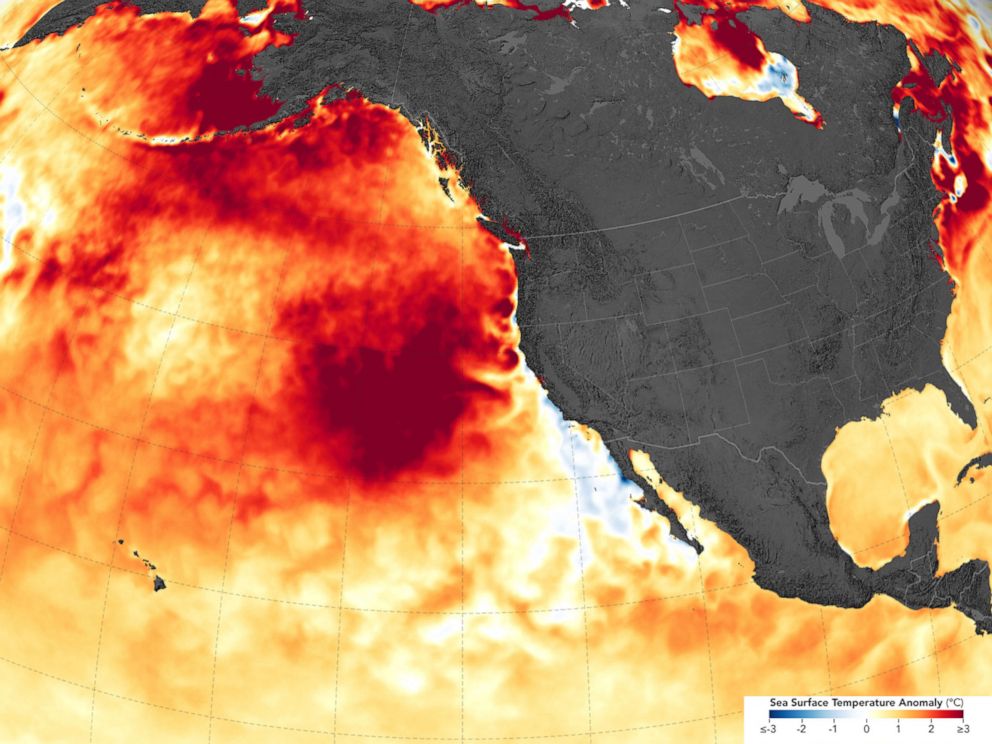Severe marine heat waves linked to human-caused warming
Unusually hot zones in the ocean likely will become longer, more frequent.
This is an Inside Science story.
Marine heat waves can wreak havoc on fisheries, coral reefs, kelp forests and other vital ocean ecosystems. In a new paper in the journal Science, climate scientists revealed strong evidence that future marine heat waves will intensify and occur much more frequently as a direct result of anthropogenic climate change.
The scientists, led by postdoctoral researcher Charlotte Laufkötter at the University of Bern in Switzerland, focused on seven well-documented marine heat waves from the past decade. For each hot spell, they calculated the relative probabilities that a similar event could have occurred with and without human influence. They found that human activities such as greenhouse gas emissions made the heat waves much more likely to occur.

"For several of these heat waves we got a human contribution of 100%, meaning that they could not have occurred without anthropogenic global warming," said Laufkötter. These included the infamous "Blob" that lingered off the coast of the Pacific Northwest from 2013 to 2016 and caused record-setting warm winters along with mass sea life starvation, as well as the intense Southwest Atlantic heat wave in 2017.
In addition to calculating the relative probabilities, the scientists predicted how much more common such heat waves would be under different future emission scenarios. Even if an ambitious effort limited total warming to about 1.5-2 degrees Celsius above preindustrial levels, Blob-like heat waves that normally occur once every 100,000 years would come about every decade. And at 2-3 C of warming, heat waves would happen every decade or even every year. Vast stretches of the ocean might exist in perpetual heat wave conditions, they found.
"It scares me, to be honest," said Laufkötter. According to her, the ocean's reaction to these heat waves may be the most accurate preview available for what global warming will look like.
Inside Science is an editorially independent nonprofit print, electronic and video journalism news service owned and operated by the American Institute of Physics.





